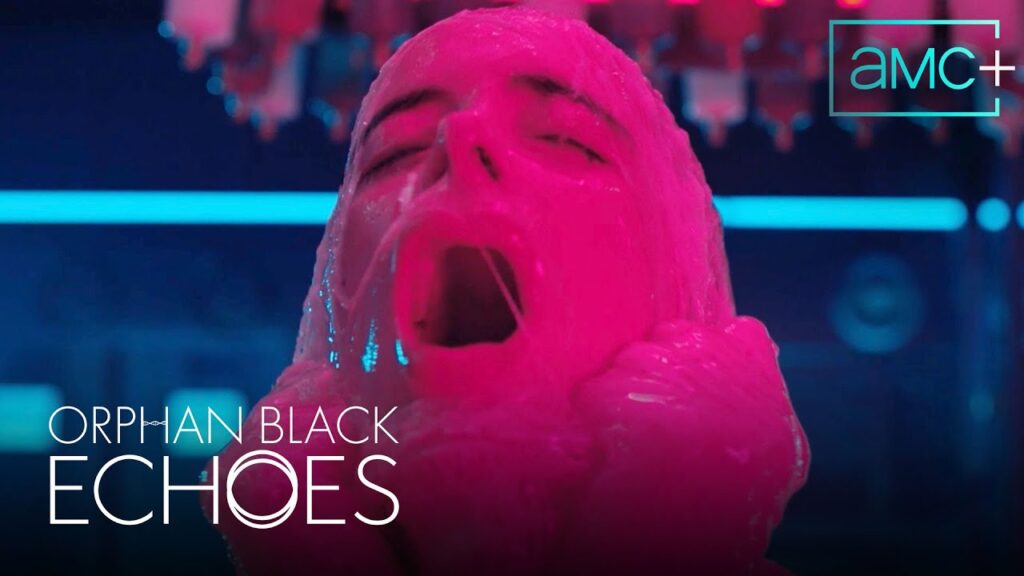Orphan Black: Echoes Review 2024 Tv Show Series Cast Crew Online
Congratulations to the ominous vat of goo community and its ever-expanding sci-fi reign. Where else might human-seeming characters emerge if not from an ominous vat of goo? They gasp and look around frantically. Ah yes, a star covered in goo — that’s how you know the bad guys are up to something.
“Orphan Black: Echoes,” premiering Sunday on AMC and BBC America, includes a few goo-births among other familiar sci-fi moments. The show is a sequel to the mesmerizing drama “Orphan Black,” in which Sarah (Tatiana Maslany) discovers she is a clone and sets out to find the other versions of herself — and to figure out her origins. “Echoes” is an apt title; the shows are similar, but this one is fainter and less original.
Our anchor is Lucy (Krysten Ritter), who doesn’t know who she is, where she came from or how she got to this fake living room in a vast warehouse. She just has to get out of there. Wait — is that a vat of goo? The early action of the show follows the life Lucy cobbles together for herself, with a medic boyfriend and his deaf daughter, who, sadly, are not interesting.
Lucy eventually discovers that she is a “printout,” a copy of a person — if not a clone exactly, then at least clone-adjacent. Like Sarah, she sets out to get to the bottom of … whatever is happening, and along the way she encounters mad scientists, a woman with dementia, a surly teen, a scheming billionaire.
“Echoes” is set mostly in 2052, and it wears its futurism lightly. Cellphones and computers are marginally sleeker, and phone booths have made a comeback, but teens are still explaining the limits of a gender binary to their baffled parents. People still smoke cigarettes and drive regular cars; guns are still abundant, and guest rooms are still decorated with fast-furniture from Amazon.
Early on, this ordinariness grates. It can feel like the whole show is in a bad mood, clomping around and resenting everything along with its characters. In “Echoes,” hostility and secrecy go hand in hand; everything seems menacing, but often it’s just obfuscated. A broad iciness makes the first few episodes dull and remote, but eventually, as the superficial mysteries are solved and the deeper mysteries emerge, the show’s more intriguing, tricky self arrives. Better late than never.
Stories about robots, clones, aliens, mutants and so on are often about those beings’ quests for, you know, humanity. They insist on their sentience and dignity in the face of degradation. At other times, they are smugly superior improvements on human beings, whom they will now enslave.
“Echoes” takes a different tack: The printouts are horrified and humiliated by what they see as their emptiness, their lack of memories, experience, history. They feel burdened and inferior, freakish and unmoored. The show uses depictions of both Alzheimer’s disease and adolescence to illustrate how excruciating it can be to not know oneself — a state the printouts are trapped in. Are you still you if nothing that happened to you actually happened to you, but instead to the person you were derived from?
The original “Orphan Black” had plenty of humor and charm, neither of which is present here. But what made it special was Maslany’s Emmy-winning performance as Sarah and her many clones. Sure, costumes, wigs and accents do some of the work, but Maslany imbued each woman with subtle but unmissable individuality and a rich, legible interiority. Each clone was different — and yet, there were similarities that ran deeper than mere resemblance. It’s an all-timer TV performance.
This show does not have a Tatiana Maslany. Instead, there are printouts who are supposed to seem alike but aggressively do not. They don’t look enough alike, but more important, they don’t behave enough alike. Their gestures aren’t actually similar, they’re just synchronized. That spark is not there, that “oh!” in your chest when you see a parent and child mirror each other without realizing, or hear siblings speak in one voice for a moment — that kind of supernatural or maybe just biological resonance.
The show’s curiosity about the nature of memory and experience has a poignant allure, but it wastes its questions and answers on stock characters and blank vessels. A few characters from the original pop up, but only in hollow ways that highlight the new show’s absence of chemistry. Copies of copies deteriorate. Echoes, too.




